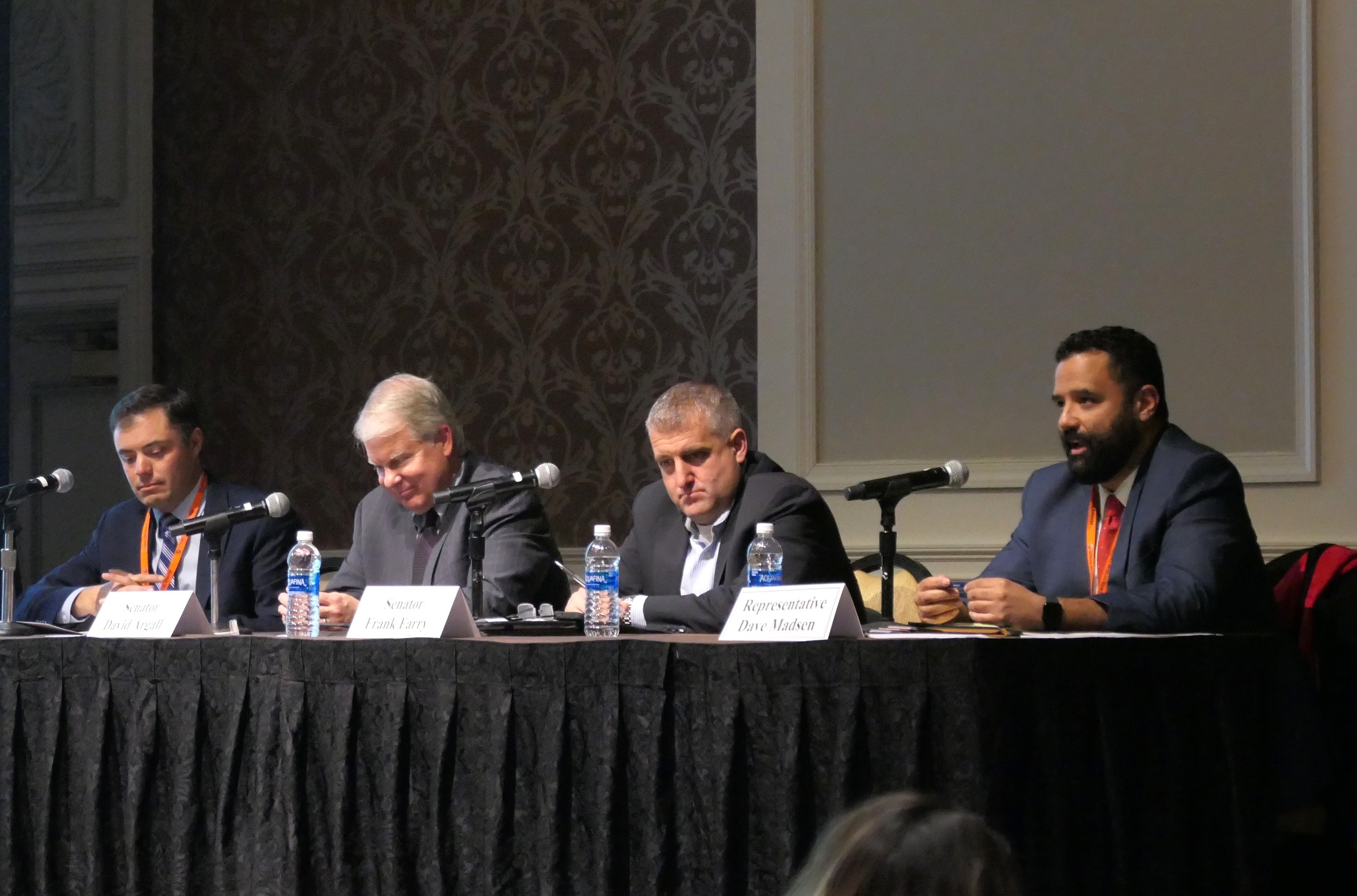(Editor’s note: This article is part of One United Lancaster’s coverage of the Housing Alliance of Pennsylvania’s 2023 Homes Within Reach conference.)
“Housing is not a partisan issue,” state Sen. Frank Farry said. “Blight is not a partisan issue.”
Farry, a Bucks County Republican who chairs the Senate Urban Affairs & Housing Committee, was one of three legislators taking part in a panel on blight at last week’s “Homes Within Reach” conference, joining Sen. Dave Argall, R-Schuylkill; and Rep. Dave Madsen, D-Dauphin.
The Housing Alliance of Pennsylvania hosts the statewide “Homes Within Reach” conference in Hershey each December. This year’s edition drew a record 950 attendees, alliance Executive Director Phyllis Chamberlain said.

The alliance provides education and technical assistance on affordable housing and lobbies for increased funding and policy reforms. In the wake of the pandemic, it and its members are reflecting on “lessons learned,” Chamberlain said.
They also are trying to keep public attention focused on affordability and housing stability. The pandemic sharply raised awareness of those issues and “we don’t want that attention and focus to go away,” she said.
Argall, Farry and Madsen all said affordable housing is high on their priority list. However, with Republicans controlling the Senate and the House tied 101-101 pending a special election, getting legislation passed that Democratic Gov. Josh Shapiro would sign is immensely challenging.
Republicans remain incensed that Shapiro pushed through the 2023-24 budget by vetoing a school choice voucher program that they supported, saying he betrayed a commitment made to them. The impasse has held up passage of fiscal “code bills” that accompany the budget, stalling the disbursement of hundreds of millions of dollars in funding.
Farry, a 15-year veteran of state government, said, “I’ve never seen it like it is right now.” Still, he and others continue to work to advance bills.
Farry is the prime sponsor of Senate Bill 802, which would create a pilot revolving loan program for county redevelopment authorities, giving them funding to acquire and redevelop blighted properties. It’s based on a program Bucks County launched in 2016.
Pennsylvania’s previous (2022-23) budget poured federal pandemic aid into affordable housing, Madsen said. It set up the Whole Home Repairs program ($125 million) and the Housing Options grant program ($100 million). (Another $50 million in state funding for Whole Home Repairs is among the funding stuck in the 2023-24 code bill impasse.)
It added $150 million in state funding to cover construction cost increases on Low Income Housing Tax Credit projects. It also raised total annual funding for the Pennsylvania Housing Affordability & Rehabilitation (PHARE) program, a key source of funding for affordable housing projects, from $40 million to $60 million.
But that hardly means the state’s housing problems have been resolved, he said. Far from it: “The No. 1 issue for my office has been affordable housing,” he said.
Argall said he has never seen so many employers clamoring for workforce housing.
The state’s housing market has a huge gap, he said: Private developers can build high-end subdivisions and there are subsidies to support low-income housing, but there are no state housing incentives available for “the folks in the middle,” he said.
Asked about the prospects for raising Pennsylvania’s minimum wage, Argall said he’s hopeful it could happen. Pennsylvania is the only mid-Atlantic state whose minimum wage is pegged to the $7.25 federal one; surrounding states’ minimums range from $8.75 (West Virginia) to $14.20 (New York).
The key is to agree on a number “everyone can live with,” he said. Advocates keep pushing for it to be higher and higher, he said, but “The higher you set it, the harder it is to get it passed.”
Pegging it to inflation will be key, Madsen and Farry said, so that it can rise automatically without legislative action in future.






